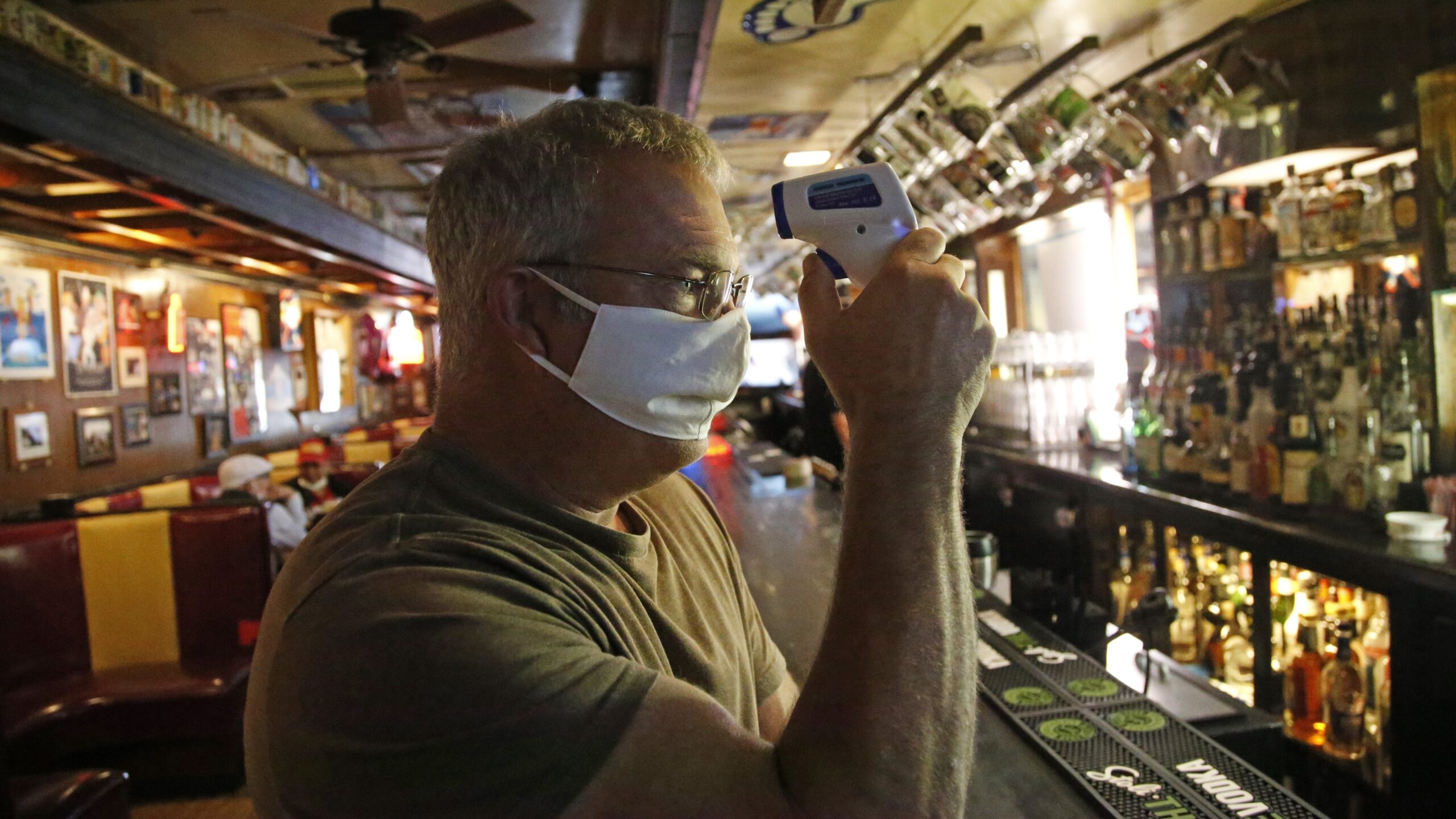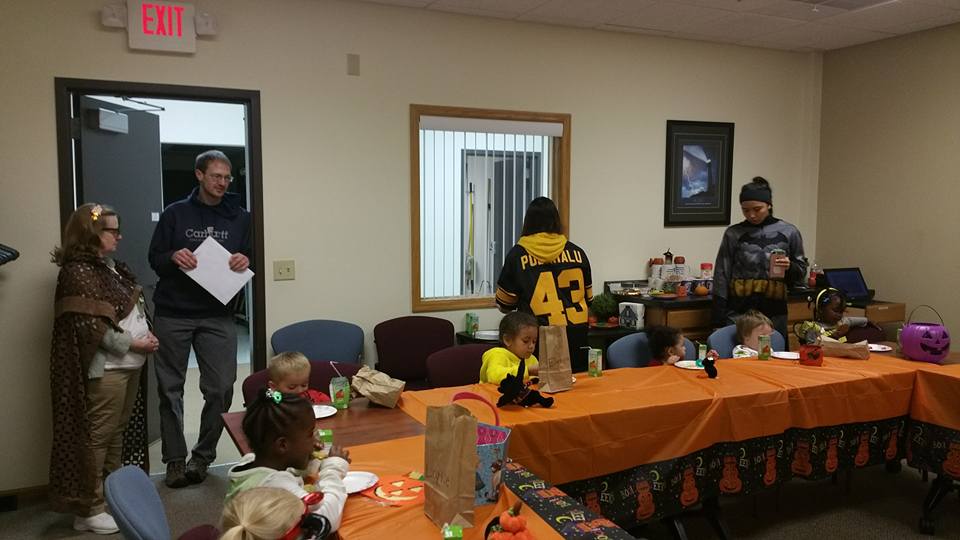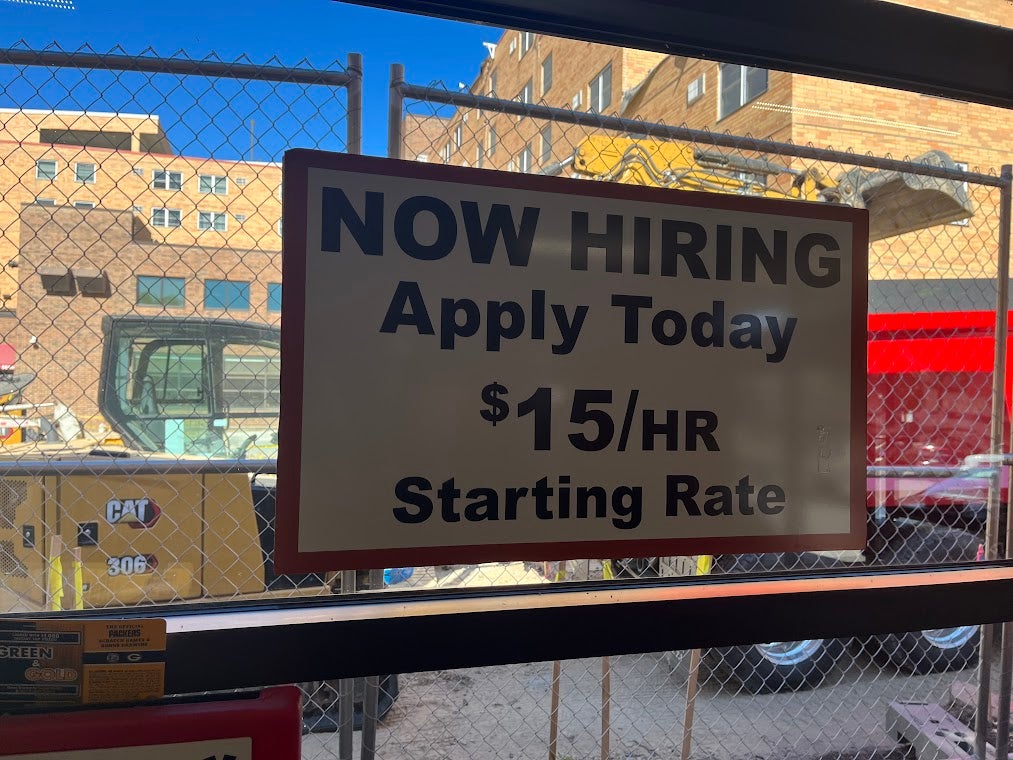Gil Amador is an executive chef at a hotel in Menomonee Falls who has been out of work since March.
With the state Supreme Court’s decision to overturn the “Safer at Home” order Wednesday, businesses will reopen and Amador will join thousands of people across the state heading back to work.
Amador said his hotel is going to reopen slowly.
News with a little more humanity
WPR’s “Wisconsin Today” newsletter keeps you connected to the state you love without feeling overwhelmed. No paywall. No agenda. No corporate filter.
“They’re not acting reckless, and I feel very thankful,” Amador said. “But we’re in Waukesha County and the whole leadership in Waukesha County … I get nervous they will put the bottom line of business before our health. And to be honest with you … what makes me more nervous is refusing to come back to work, you lose your unemployment benefits. So you are like exposed to two crises.”
Char, who didn’t want to give her last name, works at a small business in Minocqua that will reopen next week. Char said the owners have been wonderful about the upcoming reopening, but she’s still afraid of going back to work.
“We are going to hit the height of our tourist season,” Char said. “We have an enormous influx of people coming from Green Bay, Milwaukee, Madison, Illinois and Indiana. And we are very fearful of this.”
Char’s husband chose to stay home from his manufacturing job and has gotten unemployment.
“Now with the Supreme Court order, we have no choice to go back to work, otherwise (we) risk losing unemployment,” Char said. “I am an asthmatic with a compromised immune system so this is very scary. There is so much that we don’t know. Social distancing, I mean God love them for trying, but what a joke.”
Amador and Char’s reluctance to go back to work isn’t unique.
WPR’s WHYsconsin received several questions from people asking if they could be fired for not returning to work or if they could collect unemployment for staying at home awhile longer.
Like just about everything related to the coronavirus pandemic, the answer is complicated for both workers and employers.
Erik Eisenmann is a partner at the Milwaukee law firm Husch Blackwell where he heads the firm’s labor and employment practice. He said there are a couple of circumstances where an employee does have the right to not go back to work. The Occupational Safety and Health Act of 1970 requires a safe work place.
“The employee would have to have a good-faith belief that an imminent danger exists, and a reasonable person, in that employee’s shoes, would also have to believe that there is a reasonable danger,” Eisenmann said.,
In the context of COVID-19, that could mean the workplace does not have proper social distancing in place or personal protective equipment, Eisenmann said.
Another way an employee could decline going to work would be if they had a pre-existing condition that puts them in an “at risk population” for COVID-19.
These workers are protected under the Americans with Disabilities Act (ADA) and the Wisconsin Fair Employment Act, Eisenmann said.
“If someone has asthma, breathing issues, a compromised immune system, they could raise the question and their concerns,” Eisenmann said. “An employer probably can’t make a blanket rule requiring everyone to come back. Instead, they would probably have to do an individual analysis and potentially have to modify that person’s work space or allow them to continue to work from home.”
Eisenmann said there could come a point when employers will no longer want to accommodate people working from home. But they would have to be cautious about violating ADA rules.
Moving forward, everyone’s acceptance for going back to work is going to be different.
At Eisenmann’s own law firm, attorneys and staff were asked how comfortable they were coming back to work on a scale of one to 10. He said some people answered 10 and others said one.
“Some of this was based on medical conditions and others were based just on concerns with what’s happening in the economic environment,” he said.
Emily Savard, a program and policy analyst with the Wisconsin Department of Workforce Development, said if someone doesn’t want to return to work there is a “quit” provision under state law that allows them to collect unemployment.
“To meet that requirement, it needs to be a valid, substantial reason, for which the employer is responsible,” Savard said, adding that those reasons include violating OSHA regulations. “We would need to do a full edibility review to determine if the person is eligible for benefits.”
If someone is ineligible for regular unemployment benefits, they could be eligible for Pandemic Unemployment Assistance, or PUA, Savard said.
The federal CARES Act established PUA, which extends weekly unemployment benefits to people who can prove they are out of work because of the coronavirus pandemic.
There are several ways to qualify for PUA benefits, Savard said, but not everyone will.
“Frankly, simply not feeling safe is not one of the reasons outlined under Pandemic Unemployment Assistance,” Savard said. “Those reasons apply to (include) the person has been diagnosed with COVID-19 or a member of the household was diagnosed, or you’ve been placed under quarantine by a health care provider. Bottom line is: none of the reasons is simply because you are afraid of returning to work.”





